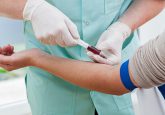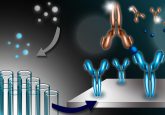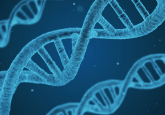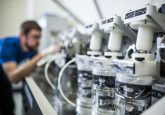Epigenetic signature in the blood may predict the likelihood of breast cancer development

A new study carried out by investigators from University College London (London, UK) has identified a DNA methylation signature in blood cells that may be a predictor of a woman’s likeliness of developing breast cancer, even in the absence of BRCA mutations.
Details of this epigenetic signature, which can be identified with a simple blood test, were published in Genome Medicine.
The study identified this distinct pattern of DNA methylation in the blood of women who are predisposed to breast cancer due to mutations in the BRCA1 gene. Further investigation revealed that this same pattern of epigenetic change could be seen in the blood of woman who lacked any BRCA mutation but went on to develop sporadic breast cancer.
“We identified an epigenetic signature in women with a mutated BRCA1 gene that was linked to increased cancer risk and lower survival rates. Surprisingly, we found the same signature in large cohorts of women without the BRCA1 mutation and it was able to predict breast cancer risk several years before diagnosis,” said the study’s lead author Martin Widschwendter (University College London).
Blood samples from two large cohorts of women in the UK were used in the study, all of which had been collected prior to breast cancer development. Patterns of DNA methylation were then observed, and the epigenetic signature was identified in both those with BRCA mutations and those without who developed breast cancer.
The team believe these findings support the theory that epigenetic changes in immune cells are linked with cancer progression and hypothesize that these changes may be responsible for gene silencing. This silencing could then in turn affect the ability of the immune system to prevent breast cancer development.
“The data is encouraging since it shows the potential of a blood-based epigenetic test to identify breast cancer risk in women without known predisposing genetic mutations,” concluded Widschwendter.
Source: New test predicts the risk of non-hereditary breast cancer.




